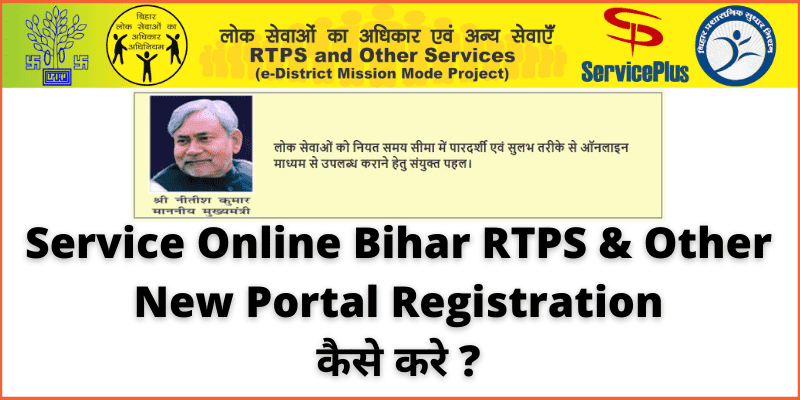Blog Meaning In Hindi: Blogging has emerged as a popular medium of self-expression and communication in the digital world. It has gained immense popularity in recent years due to its ability to connect people from all walks of life and provide a platform for sharing thoughts, opinions, and information. In this article, we will explore the meaning of a blog in Hindi, its significance, and how to start a blog in Hindi.
- Definition of Blog
- History of Blogging
- Types of Blogs
- Benefits of Blogging
- How to Start a Blog
- Content Creation for Blogs
- SEO for Blogs
- Importance of SEO
- Keyword Research
- Understanding Your Audience
- Using Keyword Research Tools
- Choosing Relevant Keywords
- Incorporating Keywords Strategically
- Monetizing Your Blog
- Conclusion
- FAQs (Frequently Asked Questions)
Definition of Blog
A blog, also known as “ब्लॉग” in Hindi, is a website or an online platform where an individual or a group of individuals, known as bloggers, share their thoughts, ideas, experiences, and information on various topics. It is a digital journal or diary that is updated regularly with new content, arranged in reverse chronological order, with the latest posts appearing at the top.
History of Blogging
Blogging has come a long way since its inception in the late 1990s. The concept of blogging originated from the term “weblog,” which was coined by Jorn Barger in 1997 to describe a log of his online activities. In the early days, blogs were simple online diaries or journals, used mainly for personal purposes.
However, with the advancement of technology and the increasing popularity of the internet, blogs have evolved into a powerful tool for communication and information dissemination. Today, blogs cover a wide range of topics, including lifestyle, fashion, travel, food, technology, finance, and much more.
Types of Blogs
Blogs can be categorized into different types based on their purpose and content. Some common types of blogs include:
Personal Blogs – Blog Meaning
Personal blogs are created by individuals to share their personal experiences, thoughts, and opinions with a wider audience. These blogs are often informal and reflect the blogger’s personality, interests, and lifestyle.

Business Blogs
Business blogs are created by companies or organizations to promote their products or services, provide industry-related news and updates, and engage with their customers. These blogs are usually more formal and focused on the business’s goals and objectives.
Niche Blogs
Niche blogs are specialized blogs that focus on a particular topic or niche. These blogs cater to a specific audience with shared interests and provide in-depth information, insights, and expertise on that particular subject. Examples of niche blogs include blogs on parenting, fitness, gardening, cooking, pets, and more.
Benefits of Blogging
Blogging in Hindi, or any other language, offers numerous benefits. Some of the key advantages of blogging include:
Increased Visibility
Blogging allows you to share your thoughts, ideas, and expertise with a wider audience. It helps in establishing your online presence and gaining visibility in the digital world. With the right SEO (Search Engine Optimization) techniques, your blog posts can rank higher on search engine result pages, driving organic traffic to your blog.
Establishing Authority
Consistently creating quality content and sharing valuable information through your blog helps in establishing yourself as an authority in your niche. It positions you as a thought leader and an expert in your field, building trust and credibility among your readers.
Building Community
Blogs provide a platform for building a community of like-minded individuals who share similar interests. Through comments, discussions, and engagement on your blog posts, you can create a loyal community of readers who follow your blog regularly and actively participate in discussions.
How to Start a Blog
Starting a blog in Hindi, or any other language, involves a few key steps:
Selecting a Blogging Platform
There are numerous blogging platforms available, such as WordPress, Blogger, Tumblr, and more. Choose a platform that best suits your needs in terms of ease of use, customization options, and scalability.
Choosing a Domain Name
Select a domain name that reflects your niche and is easy to remember. It should be unique, brandable, and preferably end with a .com extension. Avoid using long or complex domain names that may confuse your readers.
Setting up a Blog
Once you have selected a platform and domain name, set up your blog by following the platform’s instructions. Choose an attractive theme, customize the design, and set up essential pages like About Me, Contact, and Privacy Policy.
Content Creation for Blogs
Creating high-quality content is crucial for the success of your blog. Here are some tips for writing effective blog posts:
Importance of Quality Content
Quality content is the foundation of a successful blog. It should be well-researched, informative, engaging, and relevant to your target audience. Avoid copying content from other sources and focus on creating unique and original content.
Tips for Writing Effective Blog Posts
- Use catchy headlines to grab the reader’s attention.
- Write in a conversational tone and use personal pronouns to connect with your readers.
- Keep your paragraphs short and easy to read.
- Use active voice and avoid jargon or technical language.
- Incorporate visual elements like images, infographics, and videos to make your content more engaging.
- End your blog posts with a call-to-action, inviting readers to comment, share, or subscribe.
SEO for Blogs
Implementing SEO techniques can help your blog rank higher on search engine result pages and attract more organic traffic. Here are some key SEO tips for blogs:
Importance of SEO
SEO is crucial for improving the visibility of your blog in search engines. It involves optimizing your blog posts and website to rank higher on search engine result pages for relevant keywords. This helps in driving organic traffic to your blog, increasing its reach and potential for monetization.
Keyword Research
Conduct keyword research to identify the keywords and phrases that your target audience is searching for. Use these keywords strategically in your blog posts, including in the title, headings, and throughout the content. This helps search engines understand the relevance of your content and improves its chances of ranking higher.
Understanding Your Audience
Before conducting keyword research, it’s essential to understand your target audience and their search behavior. What are they looking for? What are their pain points or interests? Understanding your audience’s needs and preferences will help you identify relevant keywords that can drive targeted traffic to your blog.
Using Keyword Research Tools
There are various keyword research tools available, such as Google Keyword Planner, SEMrush, Ahrefs, and more. These tools provide insights into search volume, competition, and related keywords for your chosen niche. Use these tools to identify keywords with high search volume and low competition to maximize your blog’s SEO potential.
Choosing Relevant Keywords
Select keywords that are highly relevant to your blog’s niche and content. Avoid using generic or broad keywords that may have high competition and low conversion rates. Instead, focus on long-tail keywords that are more specific and have less competition. These keywords are more likely to attract targeted traffic to your blog.
Incorporating Keywords Strategically
Once you have identified relevant keywords, incorporate them strategically in your blog posts. Use them in the title, headings, meta tags, and throughout the content. However, it’s crucial to use keywords naturally and not overstuff them, as it can negatively impact your blog’s SEO. Your content should be reader-friendly and provide value to your audience.
Monetizing Your Blog
Another significant aspect of niche blogging is monetizing your blog. Here are some popular methods for generating income from your blog:
Display Advertising
Display advertising involves displaying ads on your blog from ad networks like Google AdSense, Media.net, or other ad networks. You earn revenue based on the number of impressions or clicks on these ads. Display ads can be an effective way to monetize your blog, especially if you have a substantial amount of traffic.
Sponsored Content
Sponsored content refers to partnering with brands or companies to create sponsored blog posts or reviews in exchange for a fee. This can be an effective way to generate income if you have a niche blog with a loyal following. However, it’s essential to disclose any sponsored content to maintain transparency with your audience.
Affiliate Marketing
Affiliate marketing involves promoting products or services on your blog and earning a commission for every sale or referral made through your unique affiliate links. You can partner with relevant companies or join affiliate programs like Amazon Associates, Commission Junction, ShareASale, and more. Affiliate marketing can be a lucrative way to monetize your blog, especially if you have a niche with high-converting products or services.
Conclusion
Blogging in Hindi, or any other language, can be a rewarding endeavor. By creating valuable content, implementing SEO techniques, understanding your audience, and monetizing your blog strategically, you can build a successful niche blog that resonates with your target audience and generates income. Remember to focus on providing value to your readers, engaging them with your content, and continuously improving your blog’s SEO to drive organic traffic and achieve long-term success.
FAQs (Frequently Asked Questions)
- Can I start a niche blog in a language other than Hindi or English?
Yes, you can start a niche blog in any language as long as there is an audience for that language and niche. However, it’s essential to consider the potential reach and monetization opportunities of that language.
- How long does it take to monetize a niche blog?
The timeline for monetizing a niche blog can vary depending on various factors such as the niche, the quality of content, SEO efforts, and traffic. It can take several months to even years to generate significant income from
FAQs (Frequently Asked Questions)
Can I start a niche blog in a language other than Hindi or English?
Yes, you can start a niche blog in any language as long as there is an audience for that language and niche. However, it’s essential to consider the potential reach and monetization opportunities of that language.
How long does it take to monetize a niche blog?
The timeline for monetizing a niche blog can vary depending on various factors such as the niche, the quality of content, SEO efforts, and traffic. It can take several months to even years to generate significant income from a niche blog.
What are some common mistakes to avoid in niche blogging?
Some common mistakes to avoid in niche blogging include not conducting proper keyword research, not creating high-quality content, not optimizing for SEO, not engaging with your audience, and not monetizing strategically. It’s crucial to avoid these mistakes to build a successful niche blog.
How often should I publish new content on my niche blog?
The frequency of publishing new content on your niche blog depends on your niche, your audience’s preferences, and your own capacity to create high-quality content. It’s essential to maintain consistency and quality in your content rather than focusing solely on quantity.
Can I use copyrighted content on my niche blog?
No, it’s not advisable to use copyrighted content on your niche blog without proper permission. It’s essential to create original content or use content that is licensed for use on your blog to avoid legal issues and maintain ethical blogging practices.
In conclusion, niche blogging can be a rewarding endeavor with the right approach. By conducting thorough keyword research, creating valuable content, optimizing for SEO, understanding your audience, and monetizing strategically, you can build a successful niche blog that resonates with your target audience and generates income. Remember to avoid common mistakes, maintain consistency in content creation, and follow ethical blogging practices to achieve long-term success.

| Click here | |
| Youtube Channel | subscribe |
| Telegram Group | Join Now |
| Our Website | Click Here |
,



